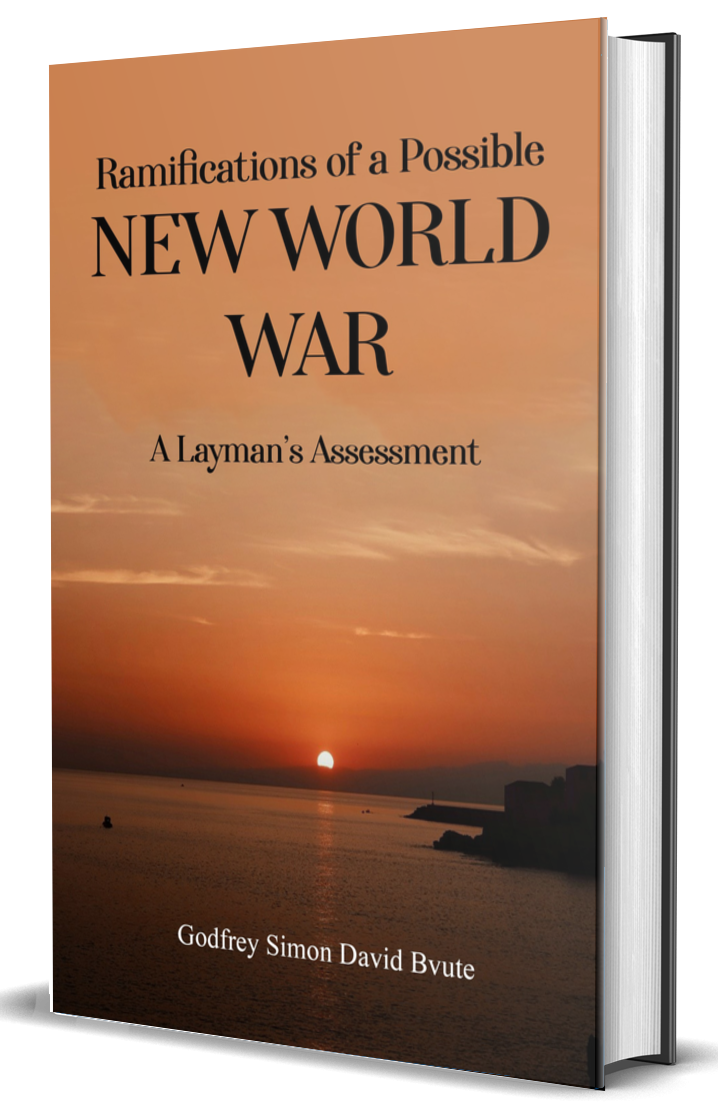World War II was supposed to be the “war to end all wars.” It devastated continents, claimed tens of millions of lives, and introduced the horror of nuclear weapons to humanity. Yet, as Ramifications of a Possible New World War: A Layman’s Assessment by Godfrey Simon David Bvute reveals, we may be closer than ever to repeating the tragic errors of that era.

History’s Harshest Lessons
Bvute devotes considerable space to explaining why World War II remains the most important turning point in modern history. The war’s scale of destruction—from the Holocaust and atomic bombings to the redrawing of borders—left scars still visible today.
But even more important, Bvute shows, are the psychological and political aftershocks. The victory of Allied powers led to a fragile world order built on mutual distrust, especially between the capitalist West and the communist East. This division set the stage for the Cold War—and for many of today’s unresolved tensions.
Ukraine and the Shadow of WW2
Fast forward to the present: the war in Ukraine. While it may seem like a regional conflict, Bvute presents it as the latest flashpoint in an unbroken chain of post-WW2 hostilities. The rhetoric, alliances, and military posturing are disturbingly similar.
Just as Hitler justified territorial aggression with ideological claims, today’s powers are justifying military actions through “defense of democracy” or “existential threats.” Just as appeasement failed to prevent Nazi aggression, Bvute warns that passive complicity or provocative escalation could trigger a global catastrophe.
Nuclear Weapons: The Ultimate Mistake?
One of Bvute’s most urgent concerns is the return of nuclear brinkmanship. In 1945, the bombings of Hiroshima and Nagasaki killed over 100,000 people instantly and left deep moral questions. Today, nuclear weapons are more powerful, more numerous, and more integrated into military strategies.
The Cold War at least had arms control treaties and dialogue frameworks. But now, with the collapse of agreements like New START and the rise of hypersonic missile technology, the world is once again teetering on a knife’s edge—with far fewer guardrails.
Ghosts We Haven’t Laid to Rest
Bvute argues that World War II did not solve the problems that caused it. Racism, nationalism, economic inequality, and the abuse of ideology remain potent forces. The institutions created after 1945—the UN, Bretton Woods institutions, and international law—have often been undermined or ignored.
As global alliances shift and authoritarianism rises in various parts of the world, the moral clarity that once united nations after WW2 has blurred. The ghosts of the past are still haunting us, because we’ve refused to fully confront them.
Final Thought
Are we repeating the mistakes of World War II? The evidence, as Bvute presents it, is chilling. But his message is not one of despair—it is a call to action. Through Ramifications of a Possible New World War, readers are urged to study history not as a dead record, but as a living warning.
This book is a guidepost for anyone who wants to avoid another global catastrophe. Its insights are deeply relevant, uncomfortably timely, and powerfully necessary.